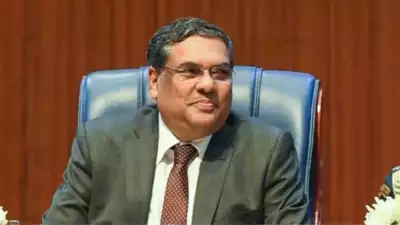By Sanjay Raman Sinha
Justice Sanjiv Khanna’s appointment brings hope for a judicial system that remains both assertive and compassionate, especially in confronting government overreach when necessary. Born on May 14, 1960, Justice Khanna’s legacy is steeped in the principles of justice. His father, the late Justice Dev Raj Khanna, was a former judge of the Delhi High Court, and his uncle, Justice Hans Raj Khanna, was renowned for his dissent in the ADM Jabalpur case during the Emergency—a decision that underscored the inviolability of life and liberty.
Justice Khanna’s career echoes this commitment to safeguarding constitutional rights, balancing individual liberties with state power, and advocating for transparent governance. Justice Khanna has a distinguished background in law, having practiced in areas like constitutional law, taxation, and commercial law. His judicial philosophy, marked by a rights-based approach, reflects his deep respect for civil liberties and the separation of powers. His judgments reveal an ongoing commitment to ensuring that the Judiciary acts as a check on the Executive power.
Notable among his rulings is his stance on bail rights. In the case of Arvind Kejriwal vs Directorate of Enforcement, he emphasized the importance of the right to life and liberty, highlighting the Judiciary’s role in safeguarding these rights even under stringent laws. Similarly, his opinion on Article 370’s abrogation reflected a nuanced perspective on federalism, calling for reconciliation and social cohesion in Jammu and Kashmir. Justice Khanna’s decisions also underscore the right to information and transparency.
He was instrumental in ruling that the chief justice of India’s office falls under the purview of the Right to Information Act, striking a balance between transparency and judicial independence. His opposition to anonymous electoral bonds further reinforced the idea that voters’ rights to information are paramount in a democracy. Throughout his tenure, Justice Khanna has also advocated for the integration of technology in the judicial system, supporting e-courts and video hearings to improve access to justice. His rulings on social issues, including the irretrievable breakdown of marriage under Article 142, show his sensitivity to social dynamics and his willingness to apply judicial activism in areas affecting personal and familial rights.
Justice Khanna’s six-month tenure may be brief, but it comes with the weighty responsibility of setting a progressive judicial precedent. With pressing issues like marital rights and marriage equality likely to come before the Supreme Court, his tenure as chief justice is expected to leave a lasting impact on India’s legal landscape.


